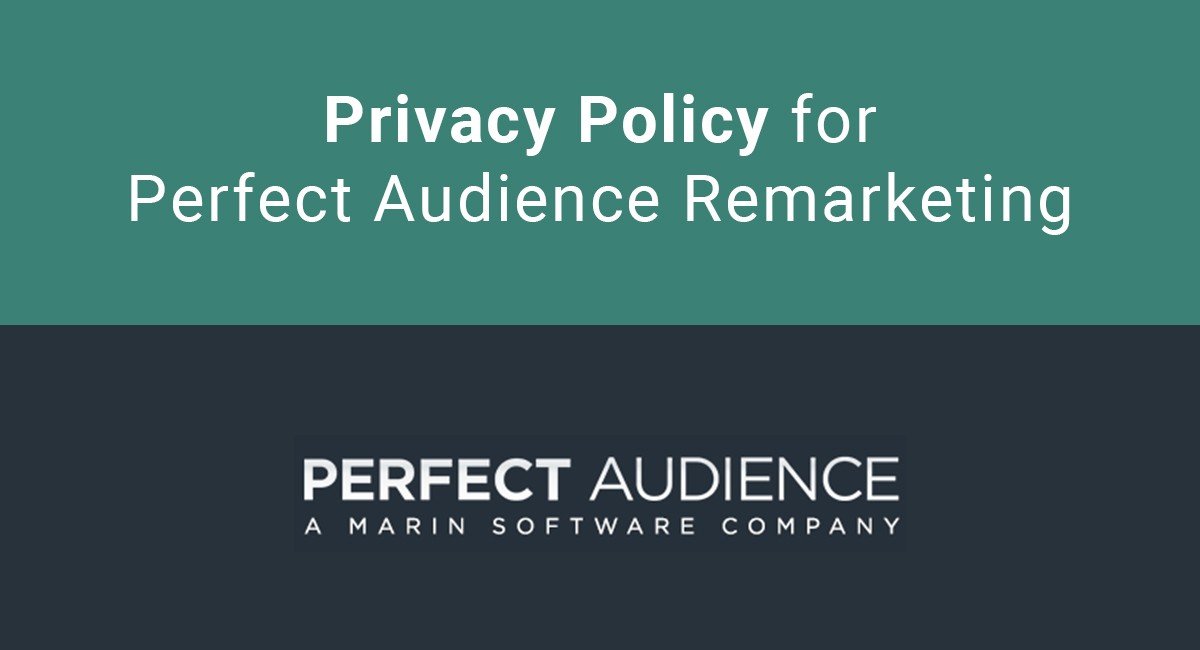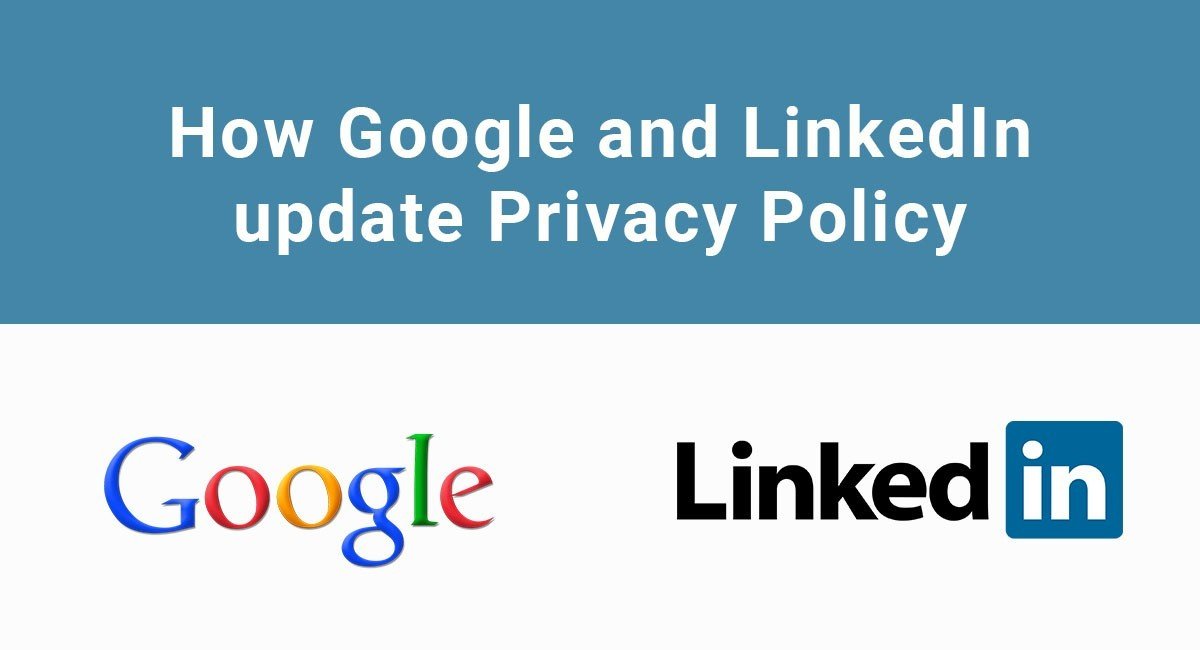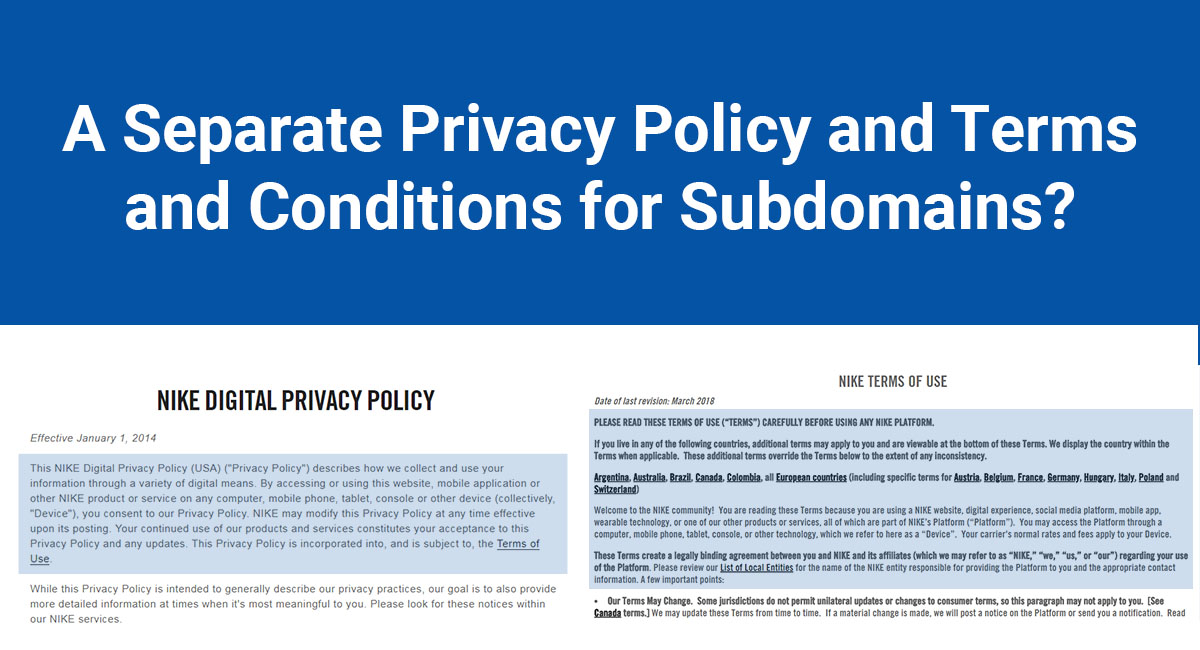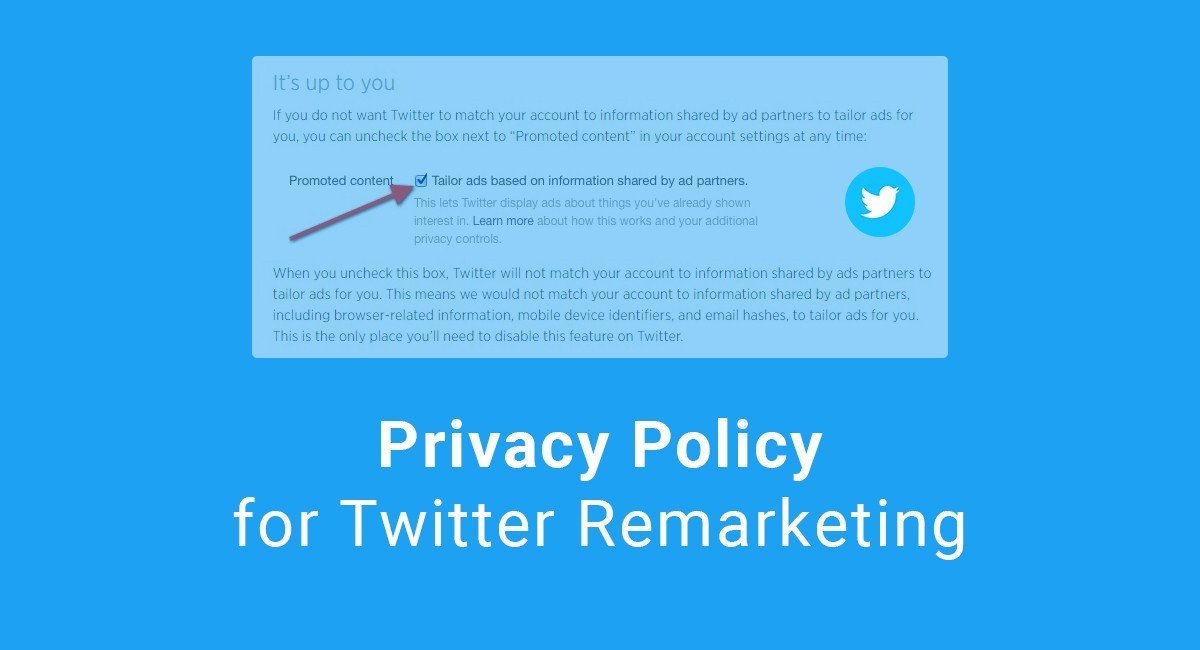Perfect Audience is a popular remarketing or retargeting platform that places your ads on social media outlets (Facebook, Twitter) and across the web.
Remarketing (also called retargeting) is an effective method of advertising that focuses on pulling back users who have visited your website or used your mobile app but didn't sign up for anything or purchase anything while there.
It's similar to AdWords, AdRoll, Twitter, AppNexus services.
When you use a remarketing service such as Perfect Audience, ads for your website will be shown on other websites to users who visit your site and then leave to go elsewhere on the web.
Remarketing has proven to be a successful way to pull back potential customers and turn them into actual customers.
This is because the customer must have had an initial interest in your product or service for him to be on your website, and after he leaves, showing him targeted ads for your products will help keep your brand in front of him, bring him back to your website, and likely encourage him to make a purchase.
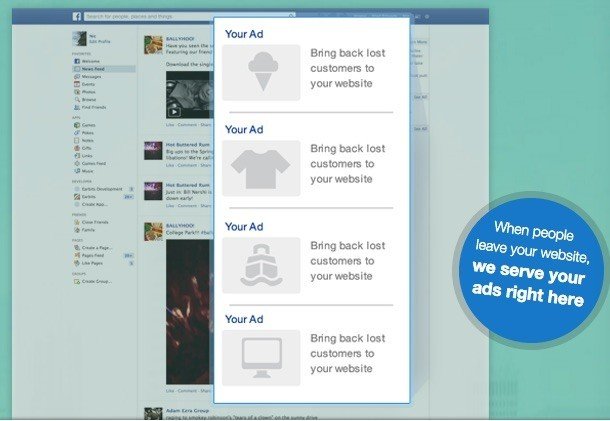
But when you use a remarketing platform such as Perfect Audience, you must update your Privacy Policy in a few key ways to disclose your use of Perfect Audience.
Your Privacy Policy must be drafted to let your users know that:
- That you use remarketing to advertise your product to visitors across websites and other platforms (such as Facebook and Twitter) after they leave your website
- That a third party (Perfect Audience in this case or any other remarketing platform or service you may already use, such as Google AdWords or AdRoll) is showing your ads on other websites
- This is all being done by using cookies and placing these cookies on the user's device
- How users can opt out of the use of these kind cookies by taking some sort of action.
For example, Perfect Audience provides an easy way to allow users to opt-out on their Opt Out page.

This page from Perfect Audience should be disclosed to your users in this legal agreement (or on the age where you post your disclaimer on using remarketing services from Perfect Audience) to allow users to opt out of Perfect Audience's remarketing service.
There's isn't a specific way on how your Privacy Policy must be updated to your use of Perfect Audience's services, as long as the above 4 points of information are covered.
This kind of disclosure in this legal agreement varies by company.
Some companies place this information in a "Cookies" section of their current Privacy Policy agreement, or in the "Advertising" section, while other companies may create a specific section solely for informing users about the use of remarketing services.
Example from Native Instruments
Below is an example from the Privacy Policy agreement of Native Instruments that has a separate section specifically for Internet-based advertising (which is also known as remarketing).
Their section very simply and concisely informs users that a remarketing service is being used by placing cookies and that third parties are using these cookies to serve ads to users.

Finally, a convenient opt-out link is provided. This short Privacy Policy from Native Instrument includes all of the required elements of a policy updated to show that a remarketing service is being used.
Example from WeGo
WeGo, a travel website, has created a much more lengthy section for their remarketing disclaimers within their Privacy Policy.
A more lengthy disclaimer such as this will provide more information to a user and can help the user better understand exactly what remarketing is and how it will affect her. However, as long as the information is all there, shorter disclaimers are just fine if not better for being easier to read:
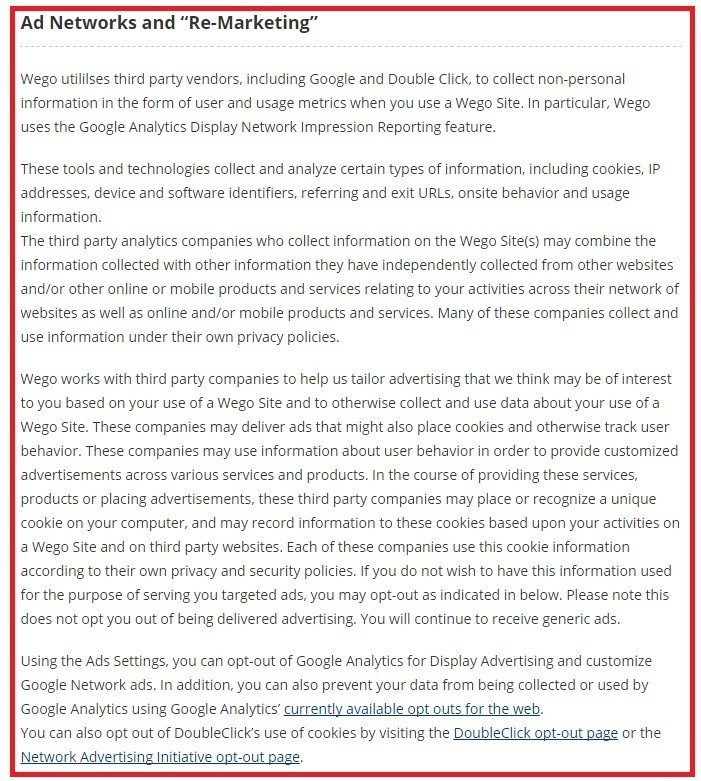
Example from New Relic
The Privacy Policy agreement of New Relic has a very general remarketing disclaimer in their Advertising section.

This is probably one of the simplest examples given, but it still satisfies the requirements by including all of the necessary information and the opt-out link.
Example from Digital Ocean
The Privacy Policy agreement of Digital Ocean places their retargeting disclaimer information within two different sections of their legal agreement.
First, there is a section titled, "Information Collected Using Cookies" that states that:
DigitalOcean stores cookies for visitors to the Site in order to identify them for relevant advertising through third party websites, also known as retargeting.
This information makes sure that users who are concerned about cookies and information being collected can easily find the facts about Digital Ocean's retargeting practices which do use cookies and collect information:

Second, Digital Ocean also places information regarding retargeting in a section titled, "Information Related to Advertising."
This section includes information from the "Cookies" section mentioned above but in a way that focuses more on the advertising aspect rather than the cookies aspect.

This double placement of information can be an effective way to ensure that users looking for this information can find it easily. Both sections are logical places for retargeting information to be placed.
If you're using Perfect Audience or any other remarketing service, you must update your Privacy Policy agreement to inform users that you use cookies for remarketing purposes of advertising on third party sites, and give your users a way to opt-out of this.
Place the necessary information within your current legal agreement. Specific titles to your use of retargeting and overall formatting of these sections are up to you, so long as the relevant information is there.
You can also do this through a separate Cookies Policy agreement focused only on cookies and the use of cookies by Perfect Audience.

Comprehensive compliance starts with a Privacy Policy.
Comply with the law with our agreements, policies, and consent banners. Everything is included.
